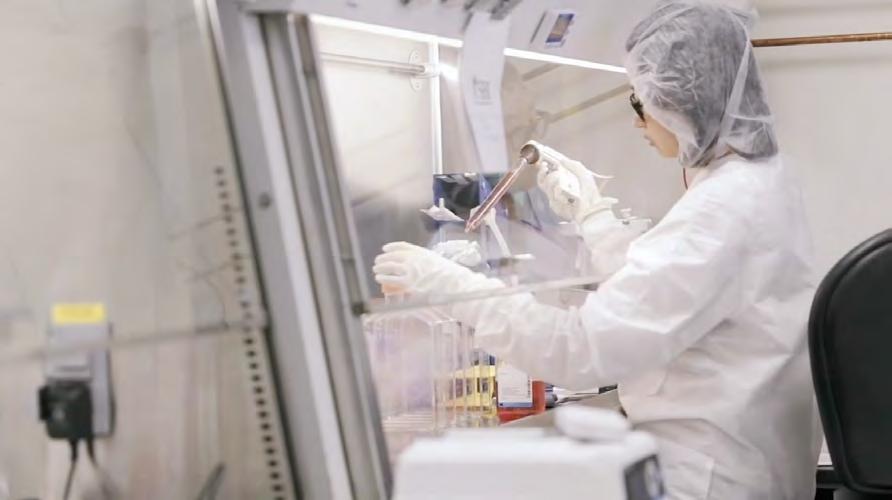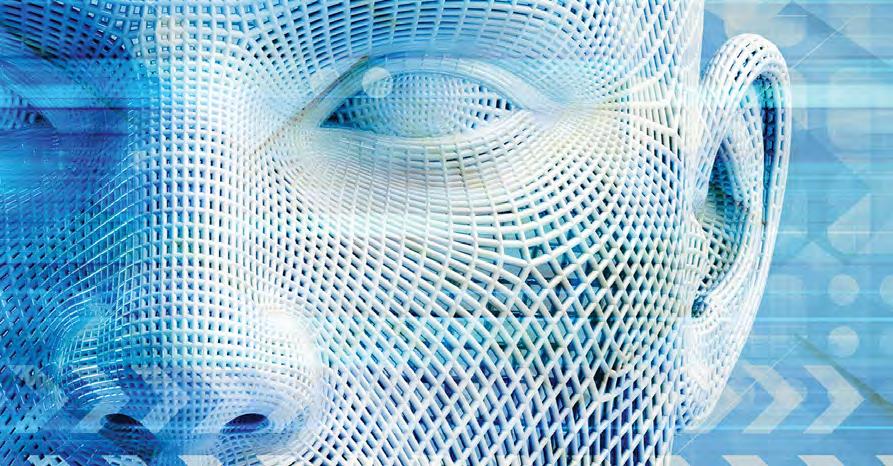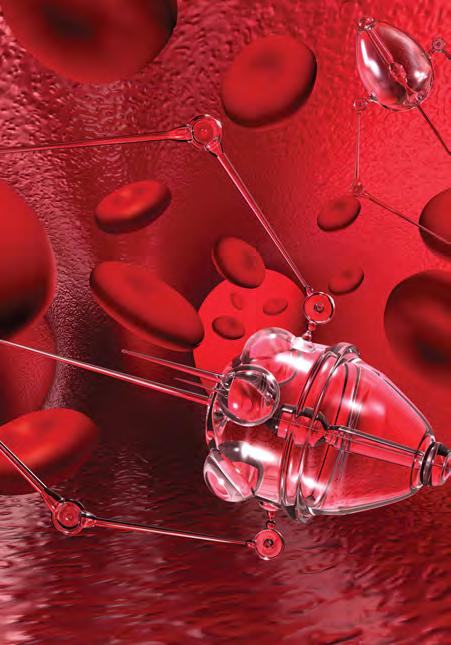
4 minute read
Living Lots Longer
WHO WANTS TO LIVE FOREVER?
As the world bounces back from a global pandemic, it seems pretty clear that we all have to be more proactive with our health. Modern life is making us frail and susceptible to disease, and it’s the old who have become the most vulnerable. Of course we are living longer nowadays, but where’s the evidence to suggest that older people today are living in better health than their parents? The sad fact remains that 80% suffer from at least one chronic condition. Basically, we’ve done a pretty poor job at looking after ourselves, and in this increasingly fast-paced, uber-modern world, it’s time that we take a fresh look at ‘how we age’. And this, I’m pleased to report, is exactly what has been happening behind the scenes. I have been closely following advances in areas of science that could be about to transform the way people look at ageing. What if we could be younger longer, a lot longer? Well, I’ve been doing some digging, and I think you may be excited by some of the things I’ve uncovered. WORDS DR. TIM ERRINGTON
NOW IS THE TIME FOR OPTIMISM!
What really piques my interest is that finally, after a century of healthcare being dominated by medicine with its focus on ‘sick care’, we are finally looking at turning the tables and looking more towards prevention and regeneration. We have the biggest tech companies in the world facing the problems associated with disease and ageing with Google, Apple, Amazon, Facebook and hundreds of smaller companies pitching enormous resources into the arena. At the same time, we are seeing these industries experiencing massive, exponential growth in terms of speed, capacity and performance, with faster computers creating ever-faster super-computers. ›
The potential here is pretty much without limits and you should perhaps prepare to have your minds blown. Peter Diamondis, of Singularity University, suggests that advances in sensors and networks, together with Artificial Intelligence, will revolutionise diagnostics; robotics and the 3-D printing of human tissue will advance procedures, while quantum computing, AI and genomics will transform the development of medicines to make healthcare not only preventative, but personalised. Before long we will have the knowledge, the will, and the ability to extend our ‘healthspans’ and ultimately our lifespans bringing about the greatest advances in human potential the world has ever seen. What is there not to be excited about?

THE ‘THREE BRIDGES’
For those interested in healthy longevity, there is good reason to be enormously excited. Even during the decade ahead, we will see breakthroughs of such importance that the very future of humanity will begin to be reshaped before our eyes. We really are approaching a ‘Eureka moment’ in history. Ray Kurzweil, the futurist, describes three bridges that must be crossed to access areas of amazing growth on the far side. Realising that these technological advances will bring advances in healthcare that today would seem nothing short of miraculous, Kurzweil suggests that the problems
g Dr Tim Errington is a Doctor of Chiropractic, Certified Functional Medicine Practitioner, Author and Public Speaker. Currently running his chain of wellness clinics in Singapore, Dr Errington is looking to the future and is turning his attention to longevity and maximising human potential.
tjnerrington@gmail.com
associated with ageing will become increasingly easy to tackle as technological advances layer on top of each other. As our potential for prolonged vitality increases incrementally, our personal strategy could look something like this. Firstly, to cross ‘Bridge One’ we simply need to remain healthy long enough to enjoy the first wave of technological advances that are coming down the pipe. This we already know how to do, far more so than most people realise, and by applying present knowledge we can buy ourselves an extra 14 +/- years. So, let’s say this takes us to 94 instead of 80.


Now we’ve reached ‘Bridge Two’ when the Biotech Revolution (DNA reprogramming/sequencing and stem-cell technology) will allow us to live a further 15-20 years and to reach the third bridge. Now think in terms of hitting 110+ years instead of 90+. As we cross ‘Bridge Three’, nanotechnology and AI (nanobots) will soon be operating at the intracellular level. Miniscule machines circulating in the blood, doing repair work to arteries and organs, removing cancer cells, viruses and other unwanted visitors will then give us the ability to extend life enormously while other advances will see us actually reversing the ageing process in many respects. What are the limits? Probably none, as it is likely that tech advances will eventually be able to overcome all obstacles.
I’m already telling my kids to prepare for a life of 150+ years. Me? I’m a 60 year-old who feels 40 most days and it would be a shame to miss out on some extra quality years. I intend to stay as I am for another two decades and then we’ll see where I go from there. Mine really could be the last generation to live a normal lifespan! I think a longevity mindset is worth adopting, one that is both optimistic and focused on possibilities. You have to be in it to win it and any side effects can only be good. Am I obsessing about living to 100 plus? No, but I’m definitely putting some serious effort into extending my ‘healthspan’ and if I end up crossing that first bridge then it’s game on; I’ll play whatever cards I’m left holding. e













